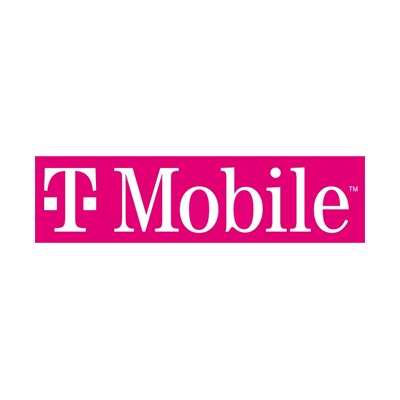¶ Provider: T-Mobile
T-Mobile is the brand name used by some of the mobile communications subsidiaries of the German telecommunications company Deutsche Telekom AG in the Czech Republic (T-Mobile Czech Republic), Poland (T-Mobile Polska), the United States (T-Mobile US) and by the former subsidiary in the Netherlands (T-Mobile Netherlands).
The T-Mobile brand was introduced in 1996 and the name was previously used by subsidiaries in other countries, including Austria (now Magenta), Croatia (now Hrvatski Telekom), Germany (now Deutsche Telekom), Hungary (now Magyar Telekom), Montenegro (now Crnogorski Telekom), North Macedonia (now Makedonski Telekom), Romania (now Telekom România), Slovakia (now Slovak Telekom), and the United Kingdom (now EE Limited).
In 1999, Deutsche Telekom formed the holding company T-Mobile International AG for its mobile communications subsidiaries. From 2003 to 2007, T-Mobile International was one of Deutsche Telekom's services, in addition to "Broadband/Fixnet", "Business Customers" and "Group HQ and Shared Services". In 2009, Deutsche Telekom transformed its structure to adopt a regional setup (Germany, Europe, US). By combining its previously separated fixed and mobile subsidiaries to form integrated local businesses, T-Mobile International itself was merged into Deutsche Telekom AG.
When T-Mobile International AG existed, the holding company was based in Bonn, Germany, and its subsidiaries operated GSM-, UMTS- and LTE-based cellular networks in Europe, the United States, Puerto Rico and the U.S. Virgin Islands. The company had financial stakes in mobile operators in both Central and Eastern Europe. Globally, T-Mobile International's subsidiaries had a combined total of approximately 230 million subscribers. It was the world's thirteenth-largest mobile-phone service provider by subscribers, and the fourth-largest multinational after the UK's Vodafone, India's Airtel, and Spain's Telefónica.
¶ History
On 1 July 1989, West Germany reorganized Deutsche Bundespost and consolidated telecommunications into a new unit, Deutsche Bundespost Telekom. On 1 July 1992, it began to operate Germany's first GSM network, along with the C-Netz, as its DeTeMobil subsidiary. The GSM 900 MHz frequency band was referred to as the "D-Netz", and Telekom named its service D1; the private consortium awarded the second license (now Vodafone Germany) chose the name D2. Deutsche Bundespost Telekom was renamed Deutsche Telekom AG on 1 January 1995 as part of phase two of the German communications reform. This process of deregulation continued in November 1996, when DT was privatized and had the largest European IPO at the time, with the stock abbreviation 'DT 1'.
In December 1999, T-Mobile International AG & Co. KG holding company was founded (later renamed T-Mobile International AG). In 2002, as DT consolidated its international operations, it anglicized the T-Mobil name to T-Mobile.
On 5 July 2005 Deutsche Telekom transformed its structure and adopted a regional setup (Germany, Europe, US). Where available, the local mobile businesses were combined with the respective local wireline businesses to follow the integrated business approach. In 2009 T-Mobile International AG was merged into Deutsche Telekom AG.
On 16 August 2021, T-Mobile announced that a hacker had illegally accessed more than 76 million Americans’ private data, with an American hacker named John Binns later claiming responsibility. Several class action lawsuits have been filed in relation to the data breach. In July 2022, T-mobile agreed to a $350 million settlement during the company's hearing at Missouri federal court, in relation to the data breech and subsequent class action litigation. The $350 million settlement will include $25,000 in reimbursement for the losses to organisations, compensation to the victims of the data breech of $25 per hour and to provide two-year subscriptions to identity theft services and $150 million on improving data security.
On 19 January 2023, T-Mobile said it first identified a bad actor had obtained the data of 37 million customers via an unauthorized API (starting on or around 25 November 2022). The data included the name, billing address, email, phone number, date of birth, T-Mobile account number, and information such as the number of lines on the account and plan features.
